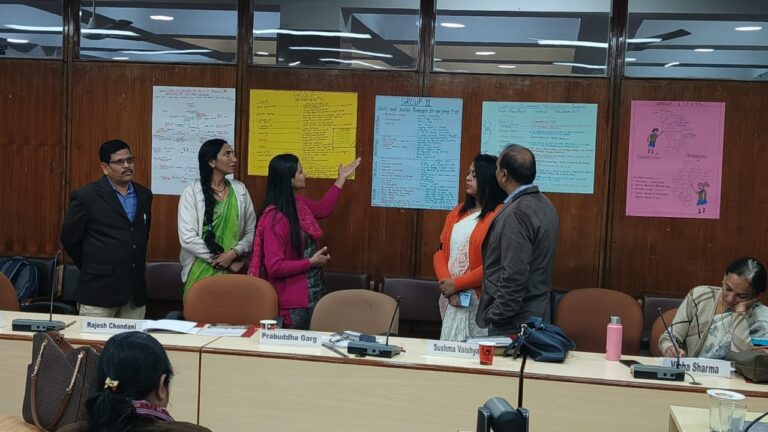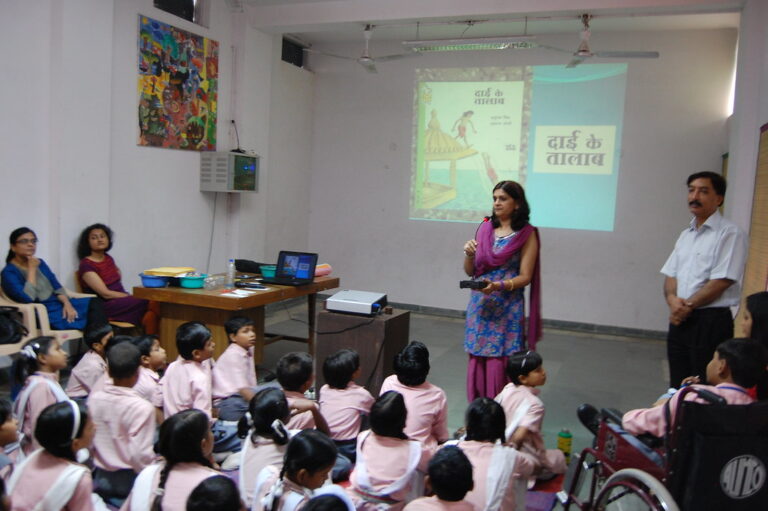Implemetation of NPST in Schools
The successful implementation of the National Professional Standards for Teachers (NPST) in schools is a cornerstone of India’s educational transformation as envisioned in the National Education Policy (NEP) 2020. NPST offers a structured, progressive model to enhance teacher quality, professional growth, and accountability. For schools, it represents an opportunity to embed high teaching standards, build mentorship cultures, and promote career-linked progression.
Objectives of NPST Implementation in Schools
- To define clear expectations for teaching practices aligned with national education goals.
- To facilitate continuous professional development (CPD) and career growth.
- To integrate reflective practices and self-assessment into school culture.
- To strengthen performance appraisal systems using evidence-based tools.
- To improve learning outcomes through empowered and motivated teachers.
Core Strategies for School-Level Implementation
🧭 1. Orientation and Capacity Building
- Conduct orientation sessions for school heads and teaching staff on the principles, standards, and benefits of NPST.
- Use examples and case studies from the NPST document (NCTE, 2024) to illustrate expectations at different career stages.
🧑🏫 2. Teacher Categorization
- Categorize teachers into three levels based on experience and competency:
- Proficient Teacher
- Advanced Teacher
- Lead/Expert Teacher
- This will serve as a foundation for role allocation, mentoring responsibilities, and goal setting.
📂 3. Portfolio Development
- Encourage teachers to maintain a professional portfolio including:
- Lesson plans and teaching innovations
- CPD records
- Peer and student feedback
- Reflective journals
- Portfolios become a key tool in self-assessment and appraisal.
🧩 4. Mentoring and Peer Learning
- Identify Lead Teachers to act as mentors for new or developing teachers.
- Create School Resource Groups (SRGs) to guide NPST activities, monitor implementation, and foster collaborative learning.
🗂️ 5. Integration with CPD
- Align all in-service training programs with the three NPST standards:
- Ethics and Values
- Pedagogical Competence
- Professional Development
- Ensure all teachers receive minimum 50 hours CPD per year (as mandated by NEP 2020).
📊 6. Performance Review and Feedback
- Establish a review cycle (mid-year and end-of-year) using:
- Classroom observations
- Peer reviews
- Student voice surveys
- Portfolio appraisal
- Use a rubric based on NPST indicators to make reviews objective and growth-oriented.
🧠 7. Link to School Development Plans
- Integrate NPST goals into the School Development Plan (SDP).
- Align NPST competencies with broader institutional goals like experiential learning, inclusivity, digital pedagogy, etc
Monitoring and Support
- School Leaders and Cluster Heads will monitor NPST implementation.
- Use of digital platforms developed by NCTE to track progress and access resources.
- Collaborate with SCERTs and DIETs for training, mentoring, and evaluation support.
Challenges and Mitigation Strategies
| Challenge | Solution |
| Resistance to change | Use capacity building, peer examples, and recognition systems |
| Limited resources | Phase-wise implementation using existing tools and structures |
| Overload on teachers | Integrate with ongoing work (e.g., lesson planning, CPD) |
Expected Impact after Implemetation of NPST in Schools
- More motivated and professionally aligned teachers
- Improved teaching-learning quality through clear standards and feedback
- Enhanced school performance via systemic teacher development
- A culture of reflection, collaboration, and innovation
Conclusion
The NCTE has provided a comprehensive framework through the National Professional Standards for Teachers (NPST). However, its implementation in schools remains a significant challenge. Many Indian schools continue to struggle with both the understanding and execution of the NEP 2020. In this context, proper mentoring and consistent guidance have become the need of the hour. I hope this article contributes meaningfully to that effort. To know about how to integrate NPST into school system you you can read another article linked here!
For Understanding NPST- Click here!
Integration of NPST into the School System- click here!
For original document click here!
To visit NCTE website Click here!
Rajni is an accomplished education professional who holds a PhD in Education and MPhil and MA degrees in Economics. She has extensive experience in research, having published over 16 research articles in peer-reviewed journals and contributed to articles in an edited book. Additionally, Rajni has authored a book in the field of education.
Rajni is passionate about making a difference in the field of education. She is an aspirant who is eager to do something innovative and valuable and is constantly striving towards creating a positive impact. She believes that education is a powerful tool which can change lives and that every student deserves access to quality education.
Rajni has a strong work ethic and a deep commitment to her profession. She is driven by her passion to learn, explore and contribute to the growth of the education sector. Her knowledge and experience in Economics and Education, combined with her intellectual curiosity and research skills, place her in a unique position to push the boundaries and creatively tackle complex challenges in the education field.
Overall, Rajni is an accomplished and driven professional who is poised to continue making a meaningful contribution in the field of education.


